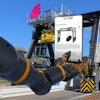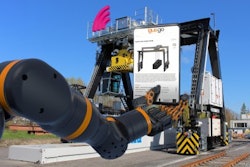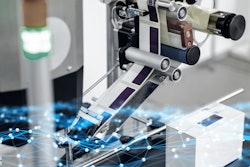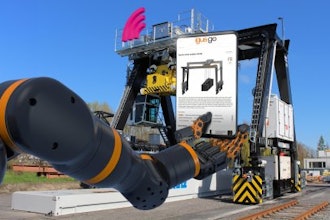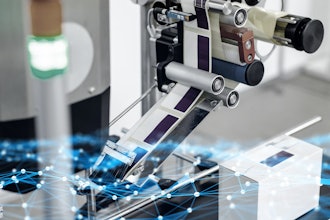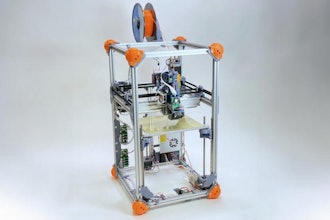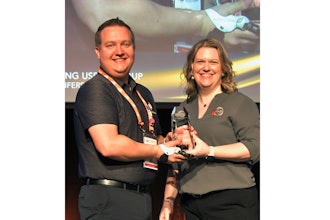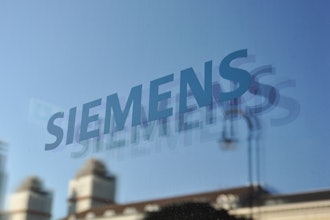NEW YORK, PARIS, LONDON, HAMBURG Apr 5, 2016 — Executives see a large gap between the current state of Digital Transformation across their extended global supply chains and what they expect to see just five years from now. These are the results of a global research study, ‘The Current and Future State of Digital Supply Chain Transformation’ conducted by Capgemini Consulting and GT Nexus, an Infor company.
Most research studies conducted on the topic so far have examined Digital Transformation within organizations, or between organizations and their customers. This new research project is the first of its kind that explores the current state and future of Digital Transformation especially between organizations and all of their partners across the extended value chain.
The study surveyed 337 executives from some of the largest global manufacturing and retail organizations across Europe and North America.
Key findings of the research study include:
Digital Transformation of the Supply Chain is important
- 75% of respondents say Digital Transformation of the supply chain is “important”
- 50% say that Digital Transformation is “veryimportant”
- 70% say they have started a formal Digital Supply Chain Transformation effort
Progress has been slow so far
- >30% of respondents said they are “dissatisfied” with progress so far
- Only 5% are “very satisfied”
Key technology enablers have been identified, but are not widely used yet
- Supply Chain Visibility Platforms/Tools (94%), Big Data Analytics (90%), Simulation Tools (81%) and Cloud (80%) are seen as the biggest technology enablers of Digital Supply Chain Transformation
- But 48% of respondents admit that right now “traditional” methods such as phone, fax, email are still the dominant ways to interact with supply chain partners
Dramatic changes are expected within just five years
- Today only 15% of respondents say that the majority of data from the extended supply chain is accessible to their organization. In five years, that number jumps to 54%
- Today only 23% of respondents say that the majority of data from the extended supply chain is analyzed and used for decision making. In five years, that number jumps to 68%
- Five years from now, 95% of respondents expect more processes with suppliers to be automated
- Five years from now, 94% expect to receive more real-time status updates from across the entire supply chain
The expected benefits of Digital Supply Chain Transformation include, but go well beyond cost reductions for logistics, inventory and maintenance, improvements in customer service and higher overall equipment effectiveness. Perhaps more importantly, Digital Supply Chain Transformation is expected to dramatically improve an organization’s agility. Agility is necessary to respond to changing market conditions, to new market entrants that can threaten existing business models or to unexpected supply chain disruptions. Such disruptions have already caused major harm to the financial performances and reputations of countless organization over the years.
Mitigating the impact of these unforeseen disruptions has become a main priority and a major driver behind the need to digitally transform. But according to the study, current levels of collaboration and visibility across the network are still low. That limits agility.
“75% of respondents say Digital Transformation of the supply chain is important, but a massive gap exists today between where companies are today and where they expect to be in just five years from now,” said Mathieu Dougados, Senior Vice President, Capgemini Consulting. “Transformation initiatives inside the four walls of the enterprise pose significant challenges within themselves. But in today’s globalized and outsourced world, Digital Transformation can only be successful if companies approach it with a holistic view of their entire value chain. That value chain can include hundreds of partners. So connectivity between partners, cross-company access to data, and the use network-wide analytics become the key focus areas.”
“Supply chain transformation is a massive undertaking that requires leadership and vision at the C-level, and a holistic transformation approach that fosters automation, connectivity, data sharing and collaboration across the entire value chain,” said Kurt Cavano, Vice Chairman and Chief Strategy Officer at GT Nexus. “This survey showed that manufacturers and retailers clearly have an idea of where they need to be and what digital technologies will get them there in the next five years. But it’s going to be a real sprint given the current reliance on outdated, analogue technologies such as phone, fax and email to collaborate and execute in the global supply chain. Meanwhile, risk of supply chain disruptions runs high, with an expensive cost to pay.”
About Capgemini Consulting
Capgemini Consulting is the Global Strategy and Transformation Consulting brand of the Capgemini Group. Capgemini Consulting specializes in advising and supporting enterprises in significant transformation, from innovative strategy to execution and with an unstinting focus on results. With the new digital economy creating significant disruptions and opportunities, our global team of over 3,600 talented individuals work with leading companies and governments to master Digital Transformation, drawing on our understanding of the digital economy and our leadership in business transformation and organizational change. Learn more about us at https://www.capgemini-consulting.com/.
About GT Nexus
GT Nexus, an Infor company, operates the world’s largest cloud-based business network and execution platform for global trade and supply chain management. Over 25,000 businesses across industry verticals, including adidas Group, Caterpillar, Citi, Columbia Sportswear, DHL, Electrolux, Levi Strauss & Co., Nestlé, and Sears share GT Nexus as their standard, multi-enterprise collaboration platform. This enables all network participants to operate against a core, real-time and always on set of information across multiple supply chain functions, allowing them to optimize the flow of goods, funds and trade information, from the point of order through final payment. For more information please visit us at www.gtnexus.com.

